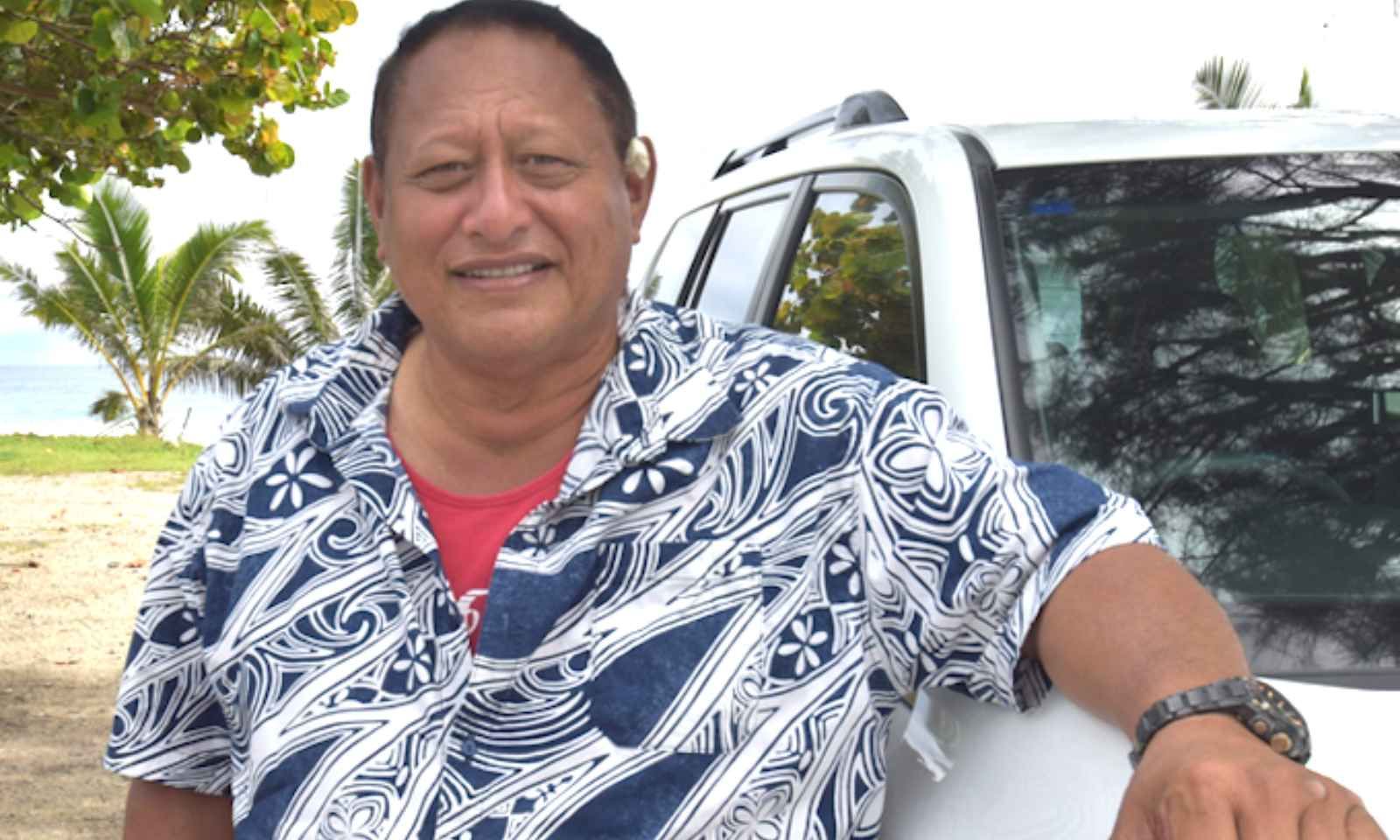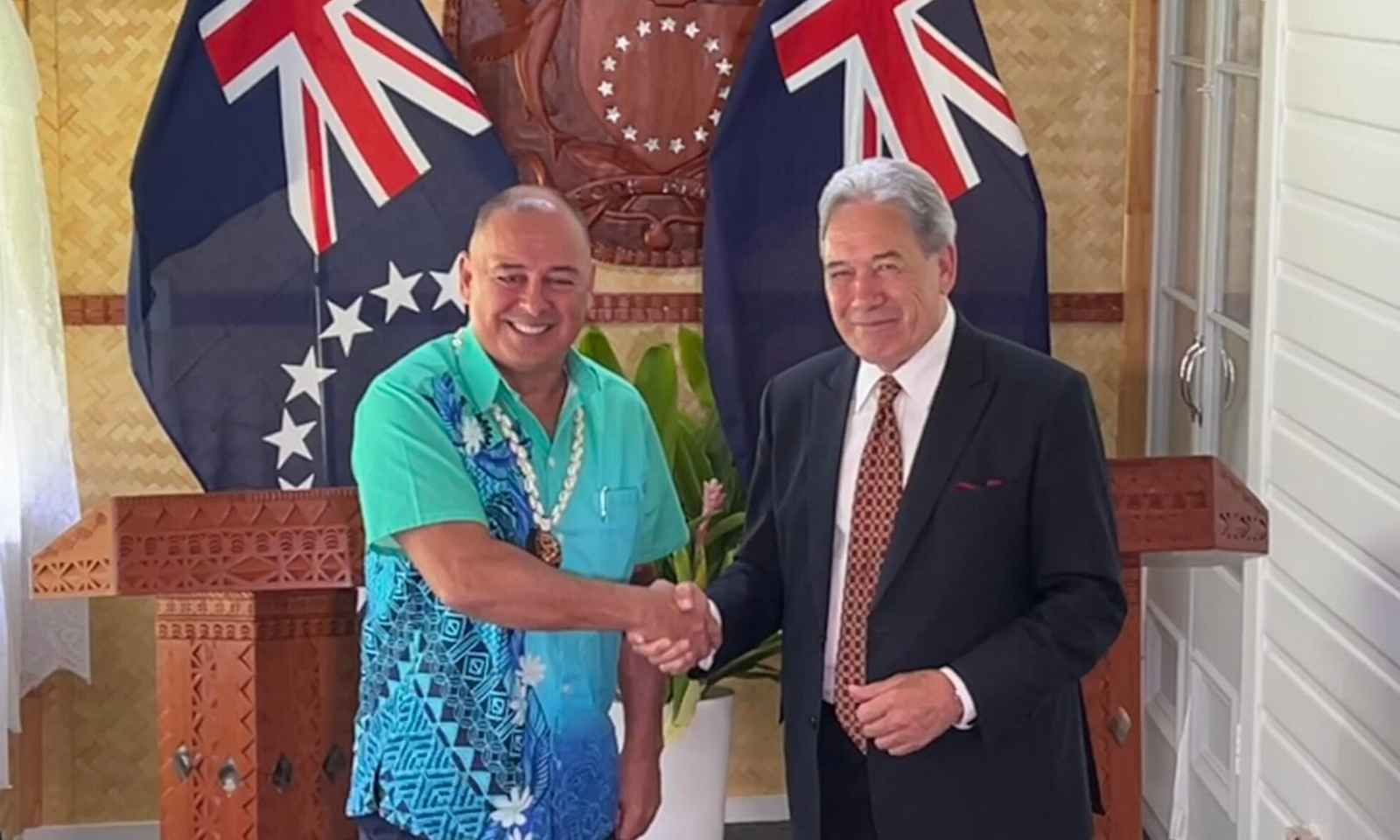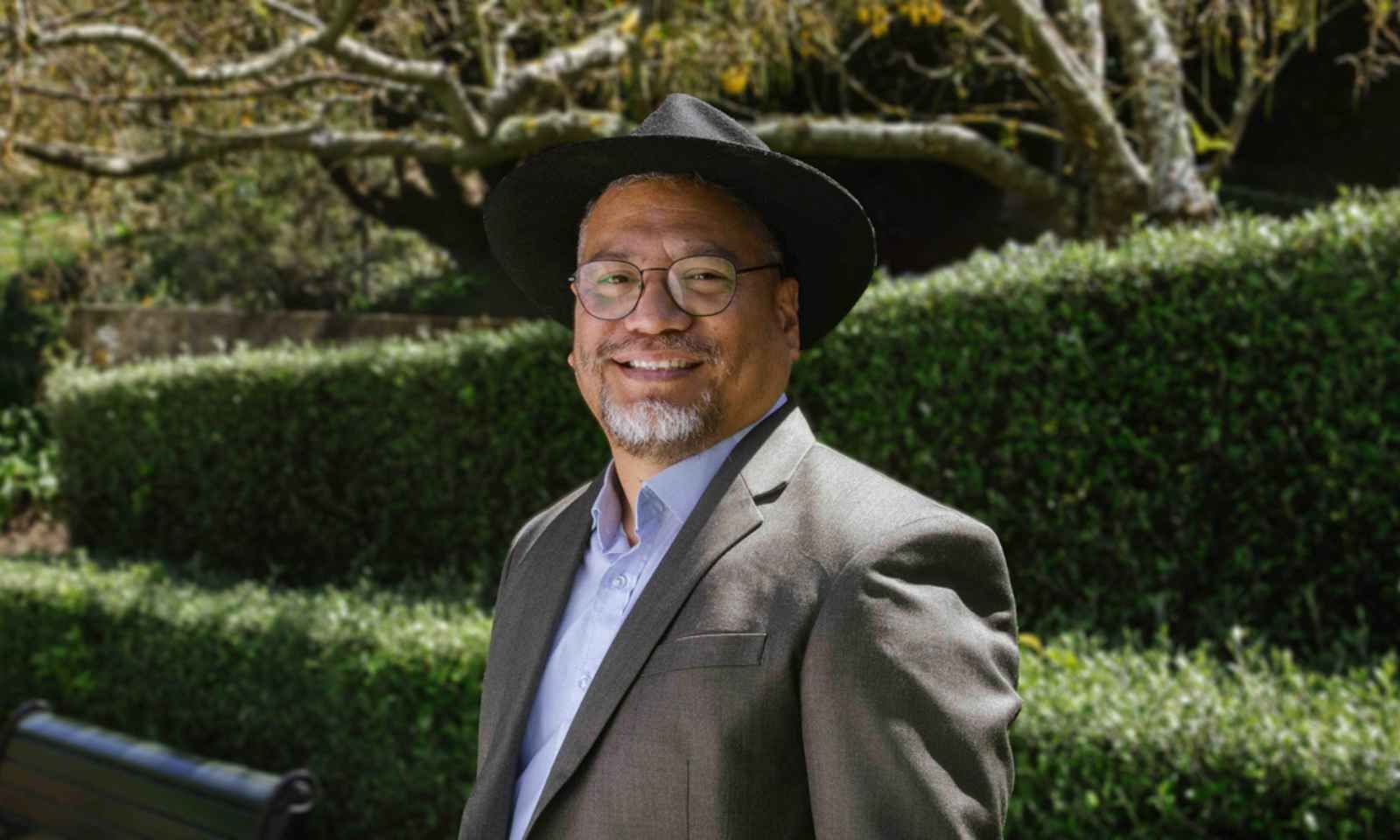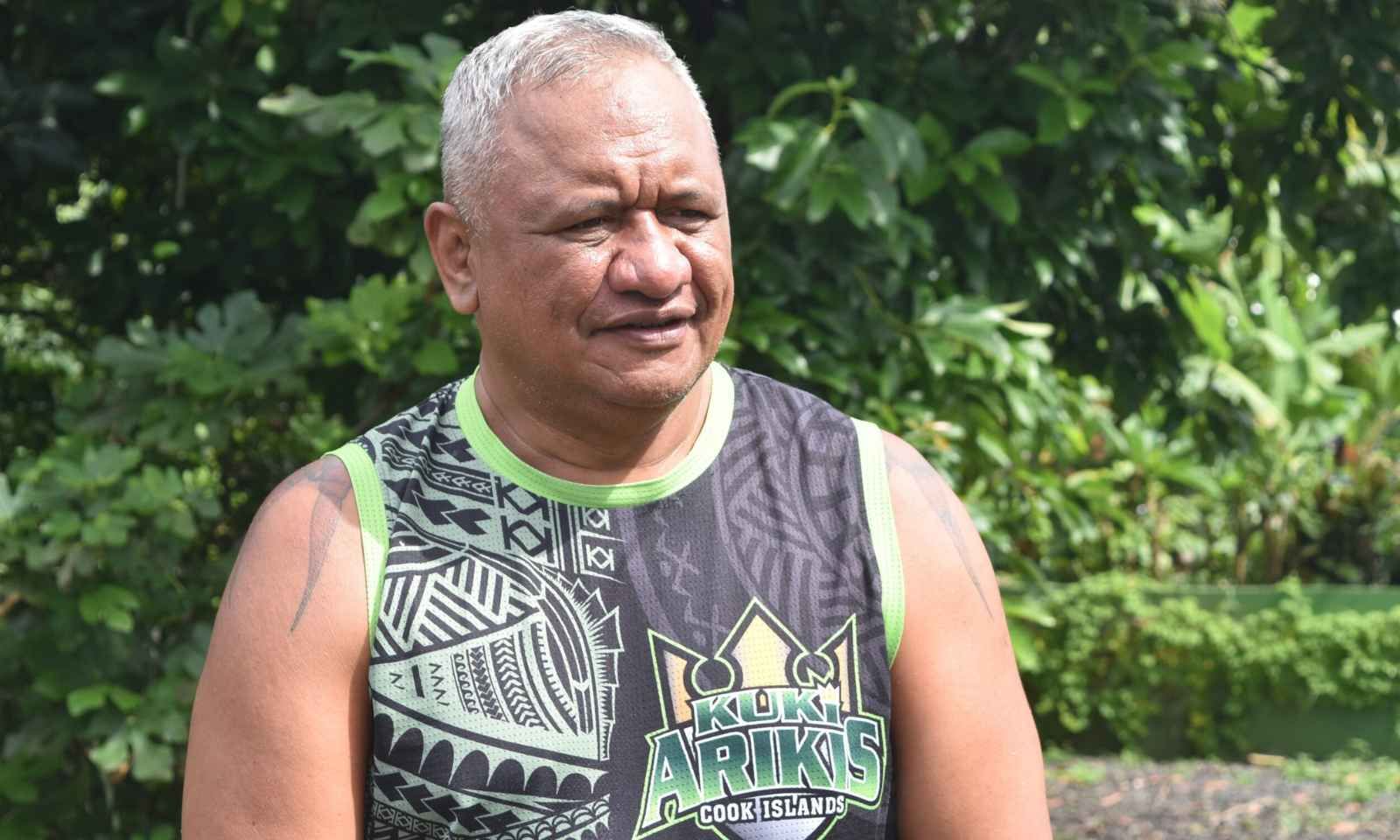

Brown had previously served as Deputy Prime Minister under former Prime Minister, Henry Puna.
Photo/Google Earth/Mark Brown Facebook
No-confidence vote against PM delayed as Budget takes priority
Hundreds of Cook Islanders are set to protest on Monday, carrying New Zealand passports in a symbolic demonstration against Prime Minister Mark Brown’s leadership and a controversial partnership deal with China.




Operation Xmas Drop 2025: US and allies deliver hope to remote Pacific communities

Our generosity is our strength but we must spend wisely this Christmas - expert


Heading off on a roadie? Here’s how to keep your car and whānau safe


Operation Xmas Drop 2025: US and allies deliver hope to remote Pacific communities

Our generosity is our strength but we must spend wisely this Christmas - expert
A motion of no confidence has been filed against Cook Islands Prime Minister Mark Brown, coinciding with plans for a significant protest involving hundreds of Cook Islanders.
On Monday, demonstrators are expected to march while carrying New Zealand passports in a symbolic gesture against Brown’s leadership and a controversial partnership agreement with China
Opposition leader Teariki Heather has criticised the government's actions, describing them as “damaging” to both the Cook Islands’ relationship with Aotearoa New Zealand and the interests of Cook Islanders living abroad.
Brown is in Beijing to sign the partnership agreement, marking the Cook Islands’ first official state visit to China, a move that has sparked widespread controversy.
Heather expressed his discontent during an interview on Pacific Mornings: “This year, we’re celebrating our 60th year [of self-governance] and we should be celebrating with New Zealand, not against New Zealand.
“So this is how strongly we feel by putting a vote of no confidence to the Cabinet and the government after the Cabinet as well.”
The opposition is organising a protest on Monday 17 February, expecting more than 1000 people to march to Parliament while carrying New Zealand passports.

Teariki Heather served as Deputy Prime Minister of the Cook Islands from 2013 to 2018. Photo/Melina Etches/Cook Islands News
“This is very damaging for us here in the Cook Islands and of course, our relationship with New Zealand,” Heather says.
“So I felt and we felt that we needed to do something for that purpose anyway.”
Although parliamentary rules prioritising the budget debate will delay the motion’s hearing, Heather remains determined.
“The government decides to avoid it, and we’ll clearly see that they don't have the confidence in themselves to govern.”
Growing political tensions and diplomatic fallout
The controversy surrounding Brown’s visit to China stems from a lack of consultation with New Zealand over a proposed comprehensive partnership agreement expected to be signed on Friday.
New Zealand’s Foreign Minister, Vaovasamanaia Winston Peters, has voiced his frustration, calling it a breach of the agreement between the two nations.
In defence of his actions, Brown says they aim to strengthen the Cook Islands’ economic resilience and environmental sustainability.

Peters travelled to the Cook Islands last February as part of his first Pacific visit. Photo/Candice Luke/Cook Islands News
‘Transparency and consultation essential’
Teanau Tuiono, Green Party Foreign Affairs spokesperson, echoed Heather’s concerns, emphasising the importance of transparency and consultation.
He described the situation as a diplomatic failure, noting that once issues escalate to media coverage, it’s often a sign that closed-door discussions have broken down.
“We've got these longstanding connections with Aotearoa New Zealand. We have the whakapapa connections as well,” Tuiono says.
“I think it's important that New Zealand doesn't stand in the way of the dreams and aspirations for independence and self-determination and cultural identity of Cook Islands as well. But it also means that it's important to have that conversation.
“Why isn't that conversation happening? What can be done to make sure that the conversation can be had diplomatically? Because having it play out in the media is not good for anyone.”
Watch Teanau Tuiono's full interview below.
On the agreement with China, Brown’s office provided limited details, mentioning discussions on marine research, aquaculture, and climate research.
Tuiono acknowledged that Western countries have fallen short in supporting Pacific nations facing climate change.
“The Cook Islands, having to rely on the tourist economy, having to find different sources of income for the islands is a massive challenge and the Prime Minister will know that as well.
“So why is it that people haven't stepped up, the Western countries in particular, to sort out that loss and damage stuff, so that the Cook Islands and other countries like the Cook Islands don't have to go looking for deep sea mining and minerals to dig up the seabed to get rare minerals to put in electric vehicles, which will end up on roads in countries like New Zealand, Australia, the UK and Europe, who have caused the most damage from climate change?”
Tuiono emphasised that New Zealand and other Western countries must honour their commitments made during the Paris Agreement to alleviate the struggles faced by Pacific Islands
Despite his criticisms of the lack of support from Western countries, Tuiono raised his concerns over the imbalance between Pacific countries and larger nations like China.

Tuiono is the Green Party's first Pacific MP with ties to Atiu in the Cook Islands. Photo/Green Party New Zealand
“Big countries struggle with China in terms of the massive power imbalance between them and everybody else.
“It makes sense that you don't go and try to front foot it with them by yourself. I think it would be strategic to have New Zealand to be there as a support.”
‘Education is missing from the debate’
For Tauraki Rongo, the producer of the PMN Cook Islands language show, the current crisis highlights a deeper problem - the lack of public understanding about the challenges facing the country.
“Growing up in the islands, all I knew is that it's constitution celebration day and what it’s about, they always say it's when we became in charge of ourselves and then later on then you come to understand you're under New Zealand, but there's nothing in the education system that teaches this growing up,” Rongo says.
“This is what I was thinking about with all these things happening and people jumping up and down with what the Prime Minister is doing, but the thing is a lot of us don't understand what the agreement is all about, that's the thing.
Watch Tauraki Rongo's full interview here
“And then that brings to mind the Waitangi Treaty, where now people are being educated about the treaty to understand what it means.”
Rongo called for constitutional education to be introduced in schools, comparing it to New Zealand’s efforts to teach the Treaty of Waitangi.
“When you used to hear debates in Parliament back then, you could really see people having an argument and having discussions.
“I always see it as, why are they always arguing?
“But then when you come later on, you come to realise the quality, the calibre of politicians that we had.

Born and raised in Rarotonga, Rongo's father has ancestral ties to the islands of Mauke, Atiu, Manihiki and Rakahanga, while his mother has links to Mauke, Rarotonga and Tahiti. Photo/Melina Etches/Cook Islands News
“I'm not too sure about today. I don't hear much debate. Norman George is gone, and you don't hear that noise in Parliament anymore.
“So I think it's really time that people look at the quality of the people they put in the House. When the government puts down the bill, it's hardly debated.
“That's why I'm curious to see how many days they sit in Parliament… I don't think they sit that long.
“It's important for me, it's important for people to really look at who they vote to put into Parliament.”